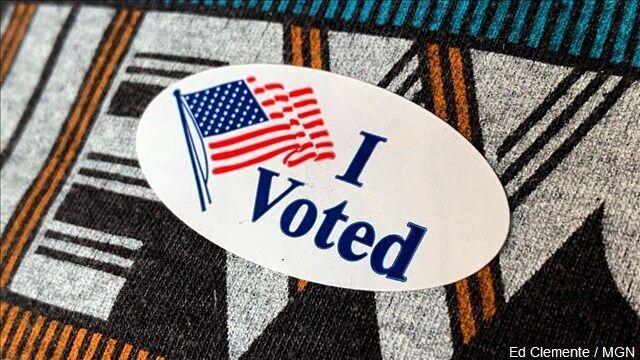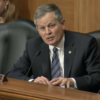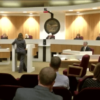Keep Charities Out of Partisan Politics

The brave Americans who registered voters in the Jim Crow South during the Civil Rights Era endured violence, in some cases even death. Since then, maximizing voter participation has been widely considered a public good worthy of charity status. But the IRS has clear rules prohibiting charities that register voters from favoring political parties or candidates. The charity known as Voter Participation Center (VPC) has defied those rules for years. One congressional office just noticed and is demanding answers.
Since 2017, the Capital Research Center (where I work) has monitored VPC’s legally dubious partisan behavior. Last week, a Washington Free Beacon report confirmed our view: VPC is running a Democratic turnout machine under the false flag of “charity.”
Skirting the legal edge of what charities may do defiles the principles of democracy and drags the charitable sector into the mud of partisan politics.
On Sept. 4, U.S. Rep. Claudia Tenney (R-NY) requested the IRS investigate VPC. Whether the IRS will sanction the group is uncertain. The evidence it should is overwhelming.
The IRS prohibition is stark: “… voter education or registration activities with evidence of bias that (a) would favor one candidate over another; (b) oppose a candidate in some manner; or (c) have the effect of favoring a candidate or group of candidates, will constitute prohibited participation or intervention.”
The IRS does not say “may constitute.” A charity that has “the effect” of favoring one political party has crossed the line.
VPC’s partisan bias has been obvious for over a decade. In his 2012 book, “The Victory Lab: The Secret Science of Winning Campaigns,” left-of-center journalist Sasha Issenberg wrote of VPC: “Even though the group was officially nonpartisan, for tax purposes, there was no secret that the goal of all its efforts was to generate new votes for Democrats.”
VPC has always been led by partisan Democrats, most recently by Tom Lopach, and in 2022, it received $450,000 from the nonprofit Future Forward USA Action – currently the largest donor to the Democrats’ top presidential super PAC. During the 2016 election cycle, before going to VPC, Lopach was executive director of the explicitly partisan Democratic Senatorial Campaign Committee.
The Washington Free Beacon found the Lopach-led VPC spent $760,000 this summer, targeting Facebook ads to “the swing states of Nevada, Arizona, Wisconsin, Pennsylvania, North Carolina, and Georgia.” Similarly, during the 2020 race, according to Time, VPC “sent ballot applications to 15 million people in key states” that decided the election.
Why does VPC, run by partisan Democrats since its creation, deliberately target its voter registration in swing states? The question answers itself.
In a revealing reply to Rep. Tenney’s letter, VPC didn’t even try to explain why they targeted those states. Nor did it reply to Tenney’s criticism that it spends much of its “charitable” funds on Democratic microtargeting firms.
But there’s more.
The recent Free Beacon report also provided damning evidence of whom VPC’s Facebook ads target – and exclude – in swing states. VPC aimed ads at fans of “African American Literature” and “Taylor Swift,” but told Facebook to ignore fans of “NASCAR,” “Duck Dynasty,” “modified Jeeps,” and the “PGA Tour.”
If a charity run by Republicans deliberately targeted NASCAR and golf fans in swing states while avoiding potential voters who read African American literature, Democrats and reporters would rightly denounce this “charity” as nakedly partisan. Far harsher accusations are also easy to imagine and would be difficult to refute.
Alas, the IRS’s history shows it’s unlikely to investigate much less punish VPC. The only solution is for Congress to simplify the law by forbidding the entire charitable sector to register voters. That includes not just groups like VPC that do the work but charitable donors that fund it, like VPC’s supporters at the Tides Foundation and nonprofits run by Arabella Advisors, the Democrats’ largest “dark money” operation.
In our microtargeting era, neither side should be trusted. The parties and other expressly political groups can handle the political work of registering voters, while charities keep their hands clean.











